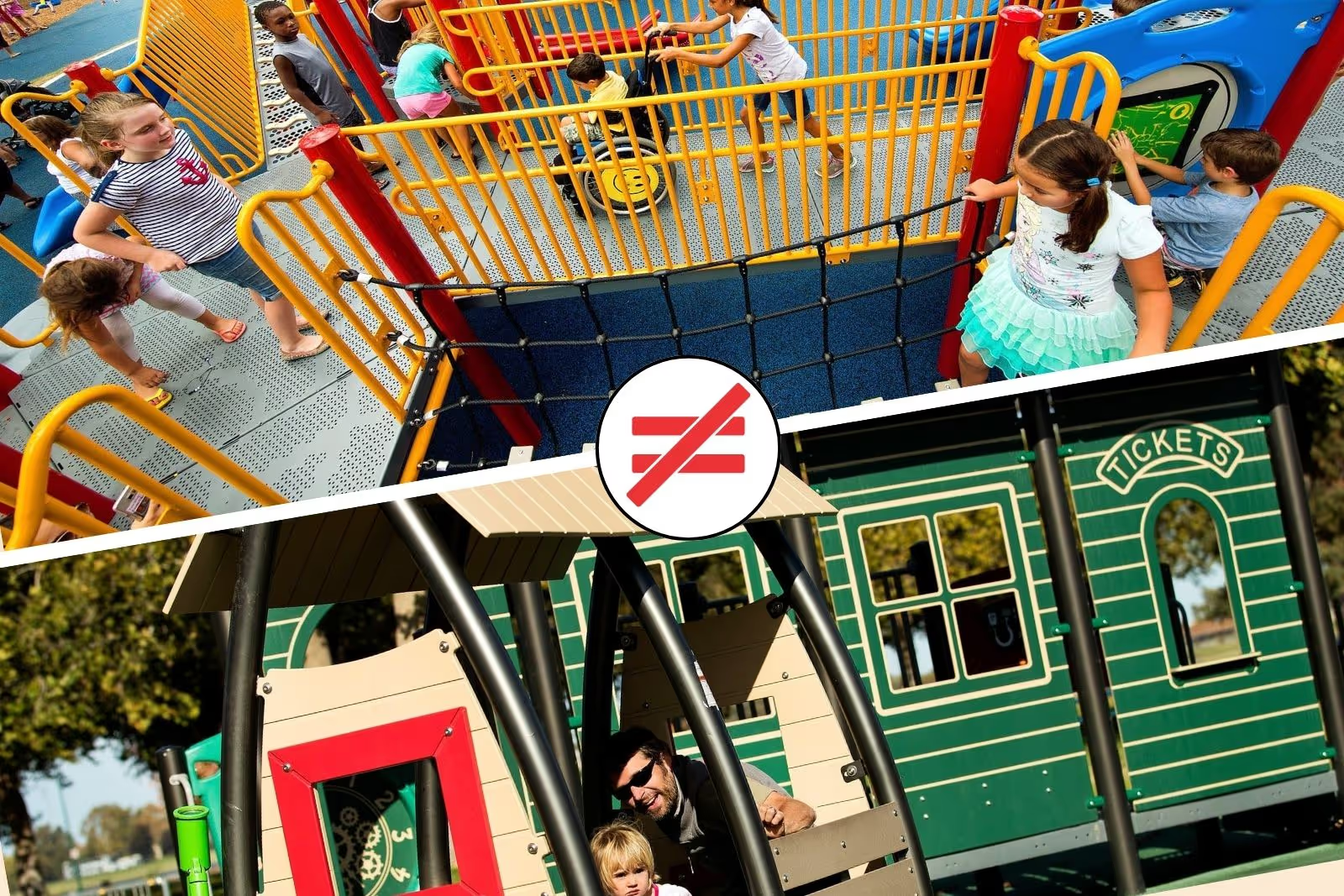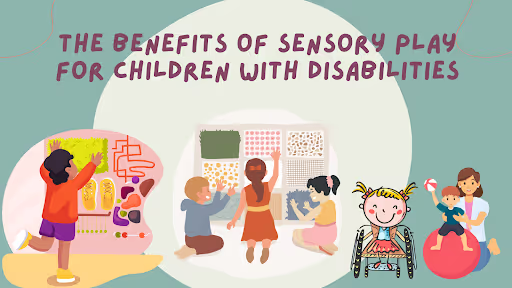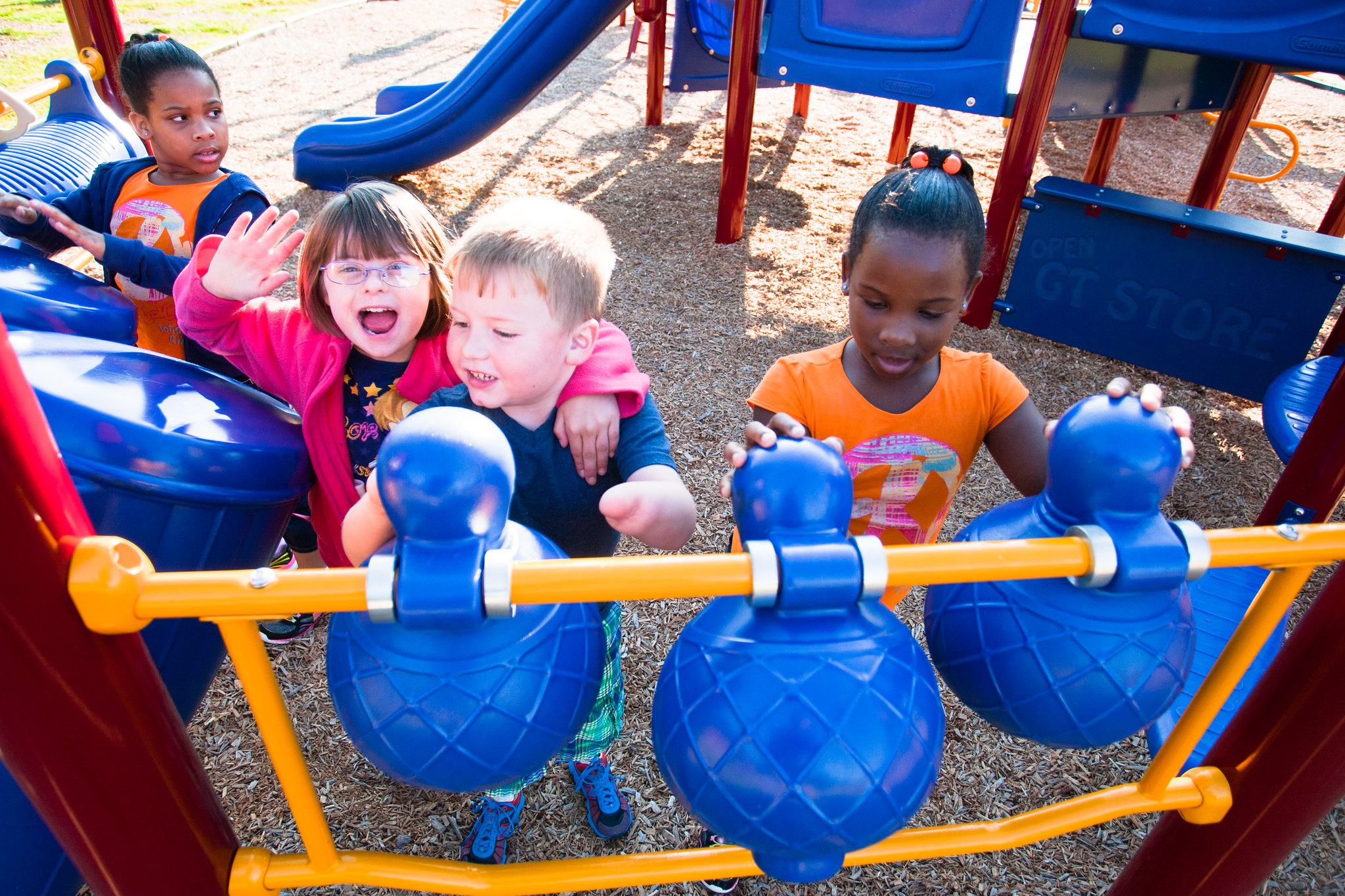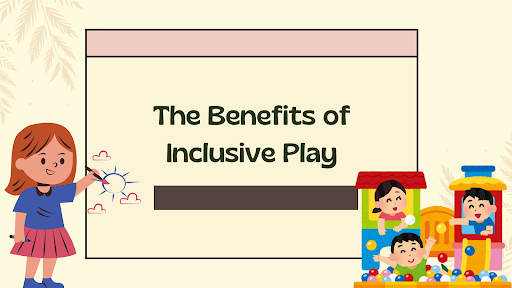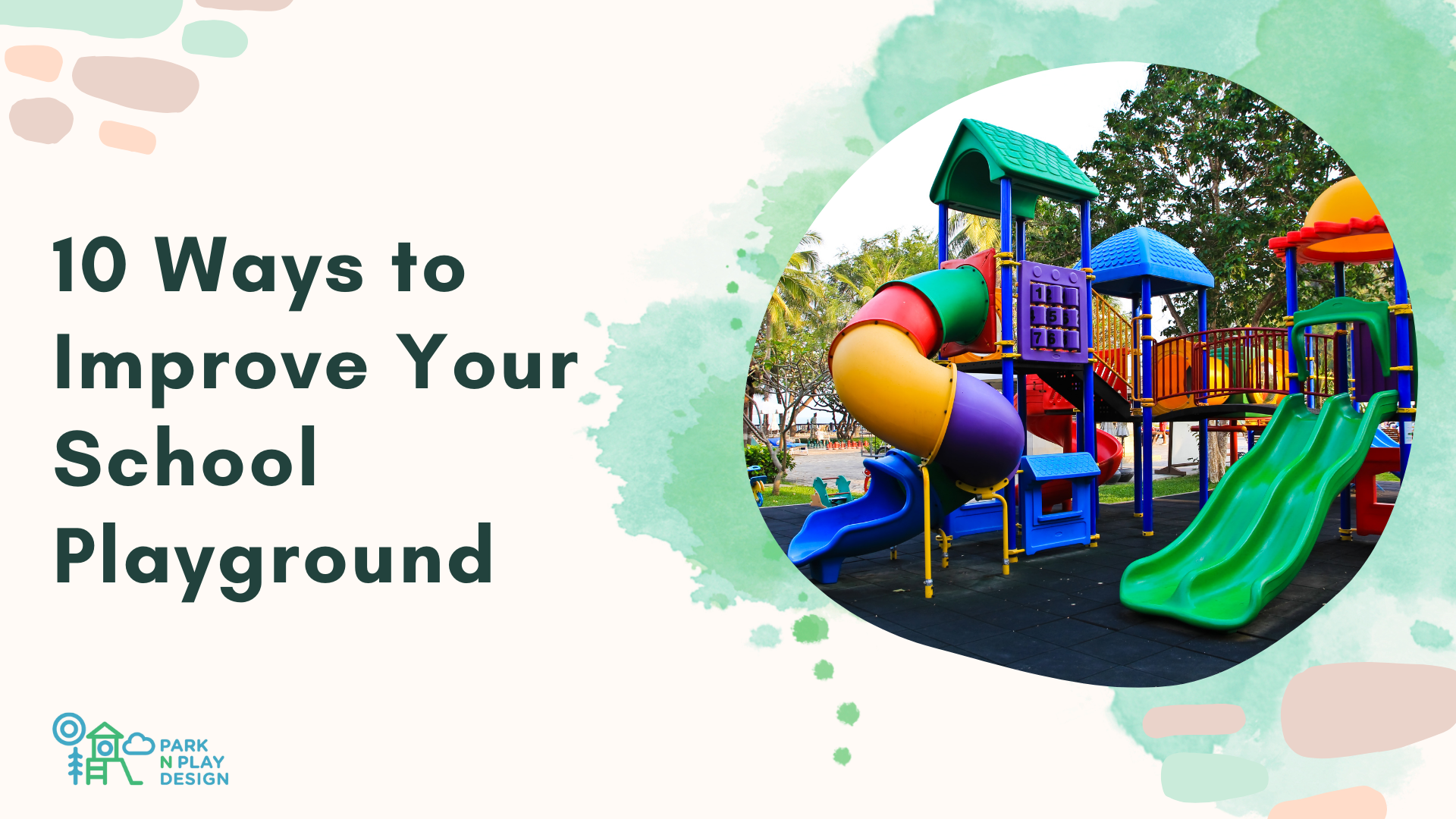The Importance of School Playgrounds
Explore the vital role of school playgrounds in child development! Discover how they enhance physical, emotional, and cognitive growth.


Playgrounds are more than just spaces for children to expend their energy. These carefully designed environments play a critical role in the development and education of young minds.
Offering a myriad of benefits that extend beyond physical activity, playgrounds contribute significantly to emotional, social, and cognitive growth. Understanding the importance of school playgrounds and ensuring they are an integral part of educational settings is crucial.
This recognition helps prioritize developing and maintaining these vital outdoor areas, ensuring they serve as a cornerstone of childhood development.
The History of School Playgrounds

School playgrounds emerged in the late 19th century, recognized as essential for child development. Initially, these spaces were simple and focused primarily on physical activities.
Over the decades, the design of school playgrounds has evolved to include various structures that encourage a broader range of activities, reflecting a deeper understanding of child development needs.
Types of Playgrounds
There are several types of playgrounds commonly found in schools:
- Traditional Playgrounds: These include swings, slides, and see-saws.
- Themed Playgrounds: Designed around specific concepts like castles or space stations.
- Natural Playgrounds: Incorporate sand, water, and landscaping to mimic natural environments.
- Inclusive Playgrounds: Designed to be accessible for children of all abilities.
Why Are Playgrounds Important in School?

Why Are Playgrounds Important in School
Promotes Creativity and Imagination
Playgrounds serve as vibrant canvases where children can unleash their creativity and imagination. Beyond mere outdoor spaces with play equipment, playgrounds are transformative environments where ordinary structures become portals to extraordinary, imaginary worlds.
Each slide, swing, and climbing frame is not just a piece of equipment but a cornerstone of an imaginative adventure. This setup entertains and plays a crucial role in cognitive development, fostering creativity and abstract thinking. Here's how playgrounds facilitate this imaginative and creative growth:
- Transformation of Equipment:
- Slides become waterfalls in enchanted forests.
- Jungle gyms transform into fortresses in epic battles.
- Development of Cognitive Skills:
- Problem-solving skills are honed as children figure out how to navigate these imaginative scenarios.
- The ability to think abstractly is developed, expanding their mental horizons.
- Stimulation of Creativity:
- Playgrounds encourage children to invent their games and stories, pushing the boundaries of their creativity.
- This creative play helps children see beyond the mundane, exploring endless possibilities and scenarios. Recognizing the value of the school playground is essential as it fosters substantial growth and development.
Develops Motor Skills
Playgrounds are essential in helping children develop necessary motor skills. Here's how various equipment aids in this development:
- Climbing Frames: These challenge children to use both their hands and feet, improving their coordination and strength as they navigate up and down.
- Swings: Swinging helps children develop balance and coordination as they learn to control their movement and keep swinging back and forth.
- Slides: Climbing up to and sliding down from slides requires both gross and fine motor skills, enhancing muscle control and spatial awareness. Additionally, interaction with other kids on the playground promotes social development and cooperation skills, further enriching their motor skill development.
Develops Cognitive Abilities
Playgrounds are not just venues for physical play; they are also critical environments for developing cognitive abilities in children. These outdoor spaces provide unique challenges and games that foster essential skills such as problem-solving and decision-making.
Children enhance their cognitive functions meaningfully by tackling obstacles and engaging in complex games found on playgrounds. Here's a closer look at how playground activities contribute to cognitive development:
- Problem-solving Skills: Navigating through playground structures like climbing nets or maze-like paths challenges children to think critically and find solutions.
- Decision-making Abilities: When playing games, children make quick decisions about their next moves, which boosts their ability to evaluate options and make choices rapidly.
- Strategic Thinking: Games involving rules and tactics, like tag or team sports, encourage children to plan and strategize, enhancing their higher-order thinking skills.
Promotes Sensory Development
Playgrounds play a pivotal role in children's sensory development, engaging all of their senses through a diverse range of textures, movements, and sounds. These dynamic environments are crucial for helping young children fine-tune their sensory perception, as they offer a safe and stimulating setting where kids can explore and learn about the world around them.
Here's how playgrounds contribute to sensory development:
- Texture Exploration: Children encounter various materials, such as smooth metal slides, rough wooden platforms, and soft rubber mats, which help them distinguish and appreciate different textures.
- Diverse Movements: Swinging, sliding, climbing, and spinning allow children to experience different types of movements, enhancing their body awareness and balance.
- Rich Array of Sounds: Playgrounds are filled with sounds—from peers' laughter to the creak of swings and the rustle of leaves. Listening to these sounds helps develop auditory skills.
- Visual Stimulation: The bright colors and varied shapes of playground equipment stimulate visual perception, encouraging visual tracking and focus skills.
Develops Social and Emotional Skills
Playgrounds serve as essential arenas for developing social and emotional skills among children. These shared community spaces provide countless opportunities for young learners to interact, negotiate, cooperate, and empathize with their peers.
Such interactions are not only fundamental for immediate social play but also for long-term personal and emotional growth. Here's how playgrounds foster these crucial skills:
- Negotiation Skills: Children often must decide who goes first on the slide or how to share the swings. This requires negotiating turns and rules, a vital skill in all areas of life.
- Cooperation: Many playground games and activities, like see-saw or team sports, require children to work together to achieve common goals, teaching them the value of collaboration and teamwork.
- Empathy Development: Interacting with diverse peers allows children to understand and respond to different emotions, fostering empathy and emotional intelligence.
- Conflict Resolution: Disagreements are common during play, and children learn to resolve conflicts amicably through communication and mutual understanding, essential skills for emotional maturity. By providing a safe and nurturing environment, playgrounds help them develop essential life skills and better understand mental health and social norms.
Promotes Community Awareness
Playgrounds provide a space for physical and cognitive development and act as vital community hubs that foster a sense of belonging and community spirit among families. These spaces bring together children and parents from various backgrounds, creating a melting pot of interactions that enhances community cohesion.
Here's how playgrounds contribute to building community awareness:
- Gathering Space: Playgrounds serve as common grounds where families from different parts of the neighborhood meet, interact, and form bonds, strengthening community ties.
- Shared Experiences: Organized activities and spontaneous play sessions at playgrounds offer shared experiences that can unite individuals and foster a collective community identity.
- Intergenerational Interaction: These outdoor areas allow children to engage with peers, adults, and seniors, promoting respect and understanding across different generations.
- Community Events: Many communities use playgrounds as venues for events like picnics, festivals, and sports days, which are vital for enhancing community spirit and cooperation.
Increases Physical and Immune Health
Regular physical activity in playgrounds is crucial in promoting physical fitness and immune system function among children. These outdoor environments provide ample opportunities for children to engage in active play, essential for their overall health and well-being.
Here's how playgrounds contribute to improving physical and immune health:
- Boosts Fitness Levels: Activities like running, jumping, climbing, and swinging on playground equipment help children develop cardiovascular endurance, strength, and flexibility, contributing to overall fitness.
- Stimulates Immune System: Outdoor play exposes children to sunlight, fresh air, and natural elements, which benefit immune system function. Sunlight also helps produce vitamin D, crucial for a healthy immune system.
- Reduces Sickness: Regular physical activity has reduced the risk of chronic diseases such as obesity, diabetes, and heart disease. A robust immune system can help children fight off common illnesses and infections. By providing a platform for active play, playgrounds teach kids the importance of physical activity and help kids learn healthy habits that can benefit them throughout their lives.
Encourages Outdoor Learning and Play
Encouraging outdoor learning and play is essential to childhood development, and playgrounds are ideal settings for this purpose. These outdoor environments provide a rich and dynamic backdrop for children to engage in hands-on exploration and discovery.
Here's how playgrounds facilitate outdoor learning and play:
- Stimulation of Curiosity: The diverse natural elements and structures in playgrounds capture children's interest and stimulate their curiosity, prompting them to explore and investigate their surroundings.
- Integration of Subjects: Outdoor play naturally integrates various subjects, such as science, math, and art, as children observe nature, measure distances, and create imaginative stories inspired by their environment.
- Hands-on Experiences: Playground activities offer children hands-on learning experiences, allowing them to interact directly with their environment and manipulate materials to understand concepts.
- Connection with Nature: Spending time outdoors in playgrounds fosters a deeper connection with nature, encouraging children to appreciate the beauty and complexity of the natural world. By encouraging kids to explore and create their own games in playgrounds, we empower them to become active participants in their learning journey, fostering a sense of ownership and curiosity that will benefit them in all aspects of life.
Gives Kids a Break From Electronics
Gifting kids a break from electronics is crucial in today's digital age, and playgrounds provide the perfect tech-free haven for this purpose. These outdoor sanctuaries offer a refreshing escape from screens, allowing children to immerse themselves in physical play and social interaction.
Here's how playgrounds serve as essential retreats from electronics:
- Promotes Active Play: Instead of sedentary screen time, playgrounds encourage kids to engage in active play, such as running, jumping, and climbing, which is essential for their physical health and well-being.
- Fosters Social Interaction: Playgrounds are bustling hubs where children meet and interact with peers from diverse backgrounds, fostering social skills like communication, cooperation, and empathy.
- Encourages Imaginative Play: Without the distractions of electronic devices, children can let their imaginations run wild, turning simple playground equipment into props for elaborate make-believe adventures.
- Reduces Screen Time: By providing an alternative to screen-based entertainment, playgrounds help reduce excessive screen time, promoting a healthier balance between digital and real-world experiences. This is particularly important for every elementary school where younger children are at a crucial stage of development, and outdoor play in playgrounds offers them valuable opportunities to disconnect from screens and engage in physical activity and social interaction.
Builds Self-Esteem and Confidence
Building self-esteem and confidence is a crucial aspect of childhood development, and playgrounds provide an ideal environment for fostering these qualities. As children tackle various challenges and conquer obstacles on the playground, they gain a sense of accomplishment and self-assurance.
Here's how playgrounds contribute to the development of self-esteem and confidence:
- Sense of Achievement: Overcoming physical challenges like climbing to the top of a jungle gym or mastering a new skill on the monkey bars instills a sense of achievement and pride in children, boosting their confidence.
- Risk-taking and Resilience: Trying new activities and taking calculated risks on the playground teaches children resilience and perseverance. Even if they encounter setbacks or falls, they learn to bounce back and try again, building resilience and confidence in their abilities.
- Positive Social Interactions: Positive interactions with peers, such as making new friends or successfully negotiating a game, contribute to children's sense of belonging and self-worth, enhancing their confidence in social settings.
- Expression of Creativity: Playground play allows children to freely express their creativity and imagination. Whether they're inventing new games or creating imaginative stories, this self-expression fosters a sense of autonomy and confidence in their abilities. Playgrounds play a vital role in fostering positive children's development and nurturing self-confidence in young individuals by providing opportunities for self-confidence and personal growth across different age groups.
Design Your Playground With Help From Park N Play Design
School playgrounds are pivotal in fostering an all-rounded educational experience. They are not just places of recreation but are instrumental in promoting children's physical, cognitive, and emotional development.
Recognizing their importance is the first step in maximizing their benefits to enhance learning outcomes. Transform your educational space into a vibrant hub of activity and learning with a custom-designed playground.
Contact Park N Play Design today to begin your journey toward creating an engaging and beneficial play area for your students.
FAQs
What is the contribution of playgrounds to school?
School playgrounds contribute significantly to holistic child development, enhancing physical health, social skills, and cognitive functions.
Why is it essential to have a playground?
Having a playground is crucial as it provides children with a safe environment to explore, learn, and grow through play beyond the confines of a classroom.
Why are school grounds important?
School grounds with playgrounds offer essential outdoor space for physical activity, helping students learn better and stay healthy.


